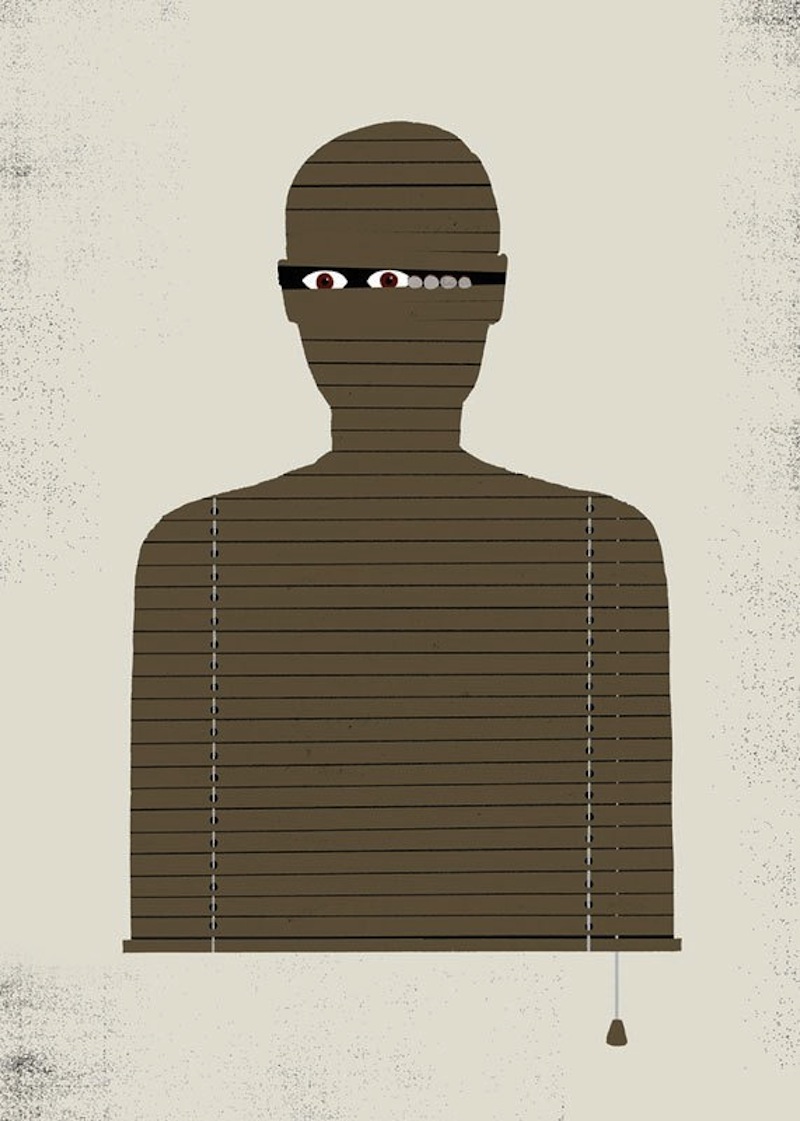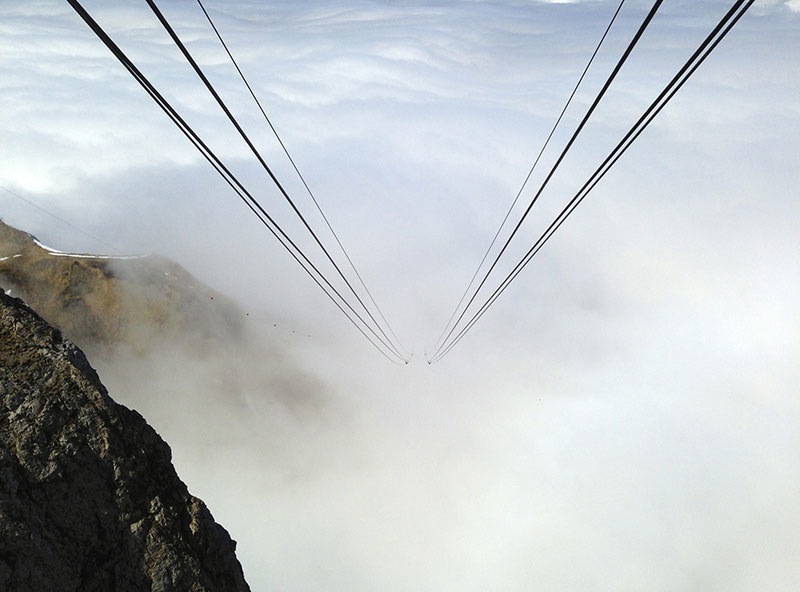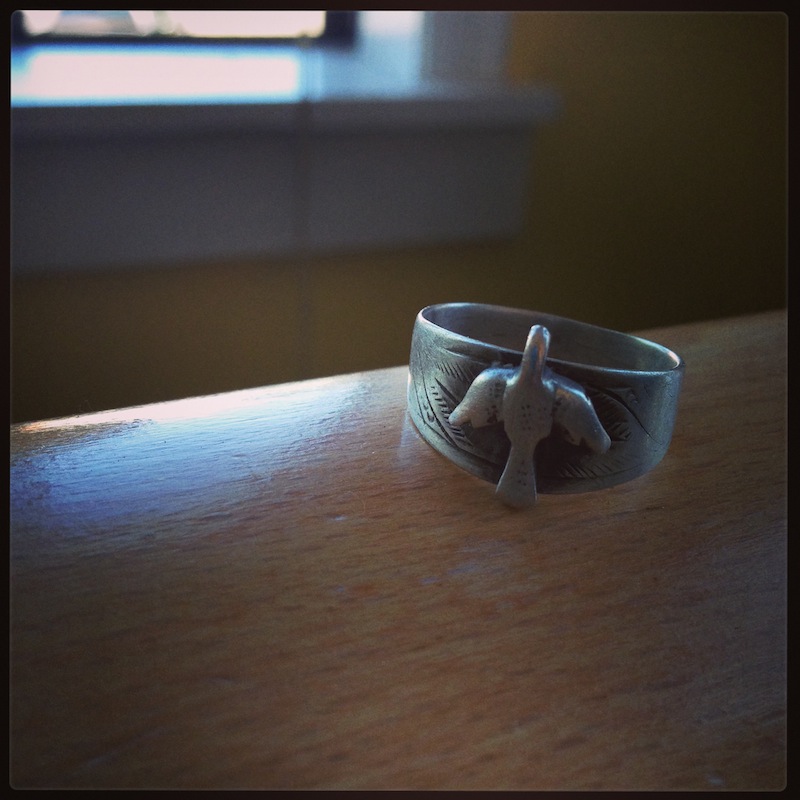
I turn forty in a few weeks, and I want to find the blocks I played with in kindergarten.
Instead, I am trying to figure out practical solutions for replacing a claw foot tub with a walk-in shower.
[]
My childhood blocks were simple squares and rectangles, painted every hue in the color wheel. I loved the feel of them in my hands, between my fingers. Unvarnished. No protective gloss. I remember learning the word, periwinkle, for my favorite block. I loved the feel of the word in my mouth.
[]
I was snorkeling in the Swan River when I felt that same joy again. It was October in western Montana. My hands and face were numb from the frigid water, but coming face to face with a cutthroat trout in a deep inky pool under a full moon overwhelmed those discomforts. I learned that fish are less fearful at night and even allow a flashlight pointed at them. For two months, my classroom was outdoors, and my teachers were a mix of people and the land. I remember nearly everything from those two months studying ecology and community forestry.
[]
I am angry about the gap between kindergarten and college. I am angry about the leaky bathtub. My husband doesn’t have this struggle. His mind lights up with seemingly random bits of creativity, just as a kindergartner discovers new galaxies in a pile of blocks. I don’t think his education was very different from mine. And yet, he is fearless about exploring his imagination.
“I could build it myself,” he says. I internally calculate the probability of completing a DIY bathroom within a week, a month, half a year. “Uh huh,” I say.
“You know what,” he exclaims. He’s excited and looks right at me. “I could lay paving stones on the floor!”
“What?”
“Yeah, that’d look really nice, and we would just treat it once a year.”
Instead of trying to be a kindred spirit and channel my inner kindergartner, I think, but what if one of us dies? I’d completely forget about that stone, and I’d be left widowed with a cracked floor. Or, even if we live long and healthy lives together, neither of us want to expend the energy trying to remember to care for the stone.
[]
The closest I’ve come to finding my childhood blocks is a set of pastels. I once placed each powdery stick on the exposed roots of a foxglove flower in my front yard. The pastels cascaded into the soil, and my heart skipped a beat. I played in the dirt and photographed the marriage created between earth and an art supply. It was thrilling.
[]
I later learned that the founder of my college field semester wanted to teach students what they had forgotten from kindergarten. How to listen. How to share. And, she knew that outdoor, experiential education encouraged joy and creativity.
[]
My kindergarten was a metaphorical sandbox where innovation sprouted. I have three memories that still glow as if they happened yesterday:
- Crying until I stuck my lip out on the first day.
- Frequent visits to the time-out spot.
- Playing with the most amazing set of blocks.
I will turn forty soon. As the day approaches, I see certain facts with alarming clarity.
- The older I get, the more aware I am of my mistakes, ignorance, and ego.
- My mind is packed full of lessons and self-help ballyhoo*.
- I continue to circle back to lessons I thought I already mastered.
- I’m more honest about expressing myself, even when it’s scary or embarrassing.
- I want more joy and play in my life.
These blocks have power over me. I don’t want a fancy car for my birthday or a new wardrobe. I want to play. I want to play with my kindergarten blocks.
It makes sense to remember the kindergarten penalties from an evolutionary survival perspective. Don’t bust open packets of mayonnaise with your heel, or you’ll get in trouble.
Perhaps I cried on the first day because I had spent most days with my nanny, who resembled the young woman on a package of Sun-Maid raisins. My nanny had a closet full of art supplies and an aquarium full of tetra fish. Gold flecks sprinkled her popcorn ceiling, and her house smelled like fabric softener. I did not want to leave that bit of heaven for a strange place full of strangers.
My childhood blocks are a keystone species** of my formal education. They embody hopeful words like curiosity, possibility, and resiliency. These words have become a vulnerable species as I’ve grown older. I want to step forward with more intention toward wonder.
[]
The more fearless my husband is with his imagination, the more rational I am in response, the more practical. That’s not a good idea, I will say. I can’t help but wonder, though, what am I missing out on by avoiding mistakes?
The closer I am to forty, the more delusional my desire becomes to avoid messing up. As if getting older means I may now live perfectly. The only perfection I’ve ever experienced is a manicure.
Maybe I need to lighten up on this constant reflection about what I’ve learned in the past forty years. I’ve made many painful and beautiful messes.
Still, I want to return to the kindergarten neurons in my brain, to the grassy habitat uncluttered by fear and cache seeds for unanticipated possibilities. I want to play and enter my forties with wide, open zeal.
Yesterday, my husband and I went to an art supply store just for fun. He bought indigo ink for his fountain pen. I couldn’t find the blocks from my childhood, but I brought home a set of colored pencils. I spent the evening coloring in my journal while we watched a prime time television drama.
“Let’s try the paving stones,” I say.
“It’ll be fun,” he says. “Let’s see what happens.”
* What a wonderful word, ballyho.
**Keystone species are plants and animals identified as essential to the survival of other plants and animals. Healthy habitat for a bird called Clark’s nutcracker, for example, is tied to the health of whitebark pines, which also affect the health of squirrel, trout, and bear populations.
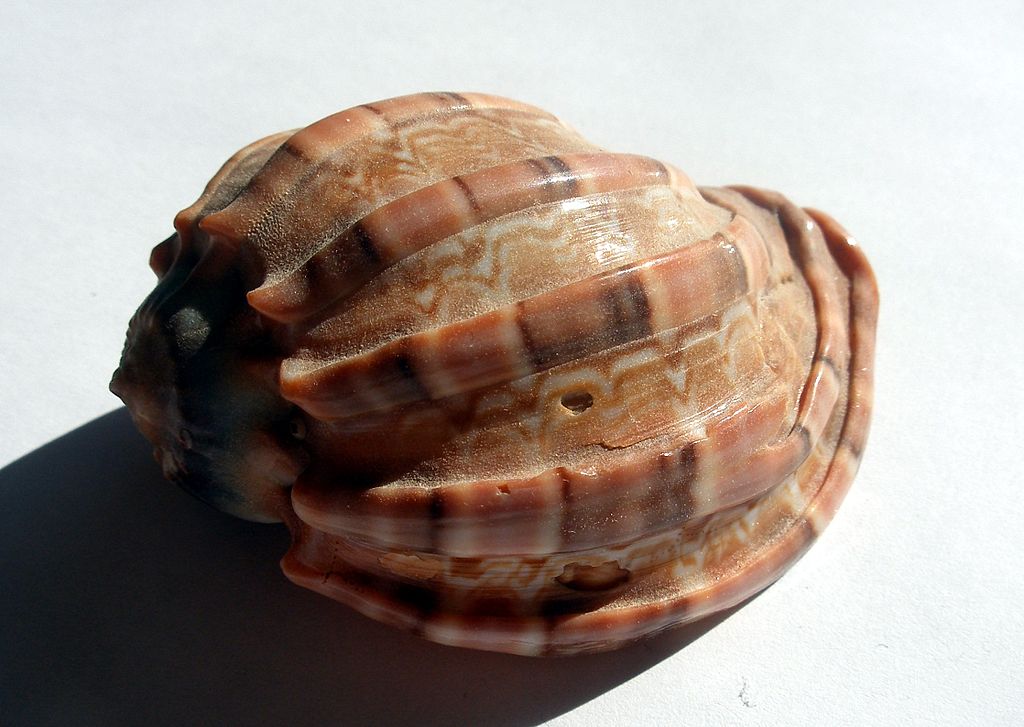 Read Part 1
Read Part 1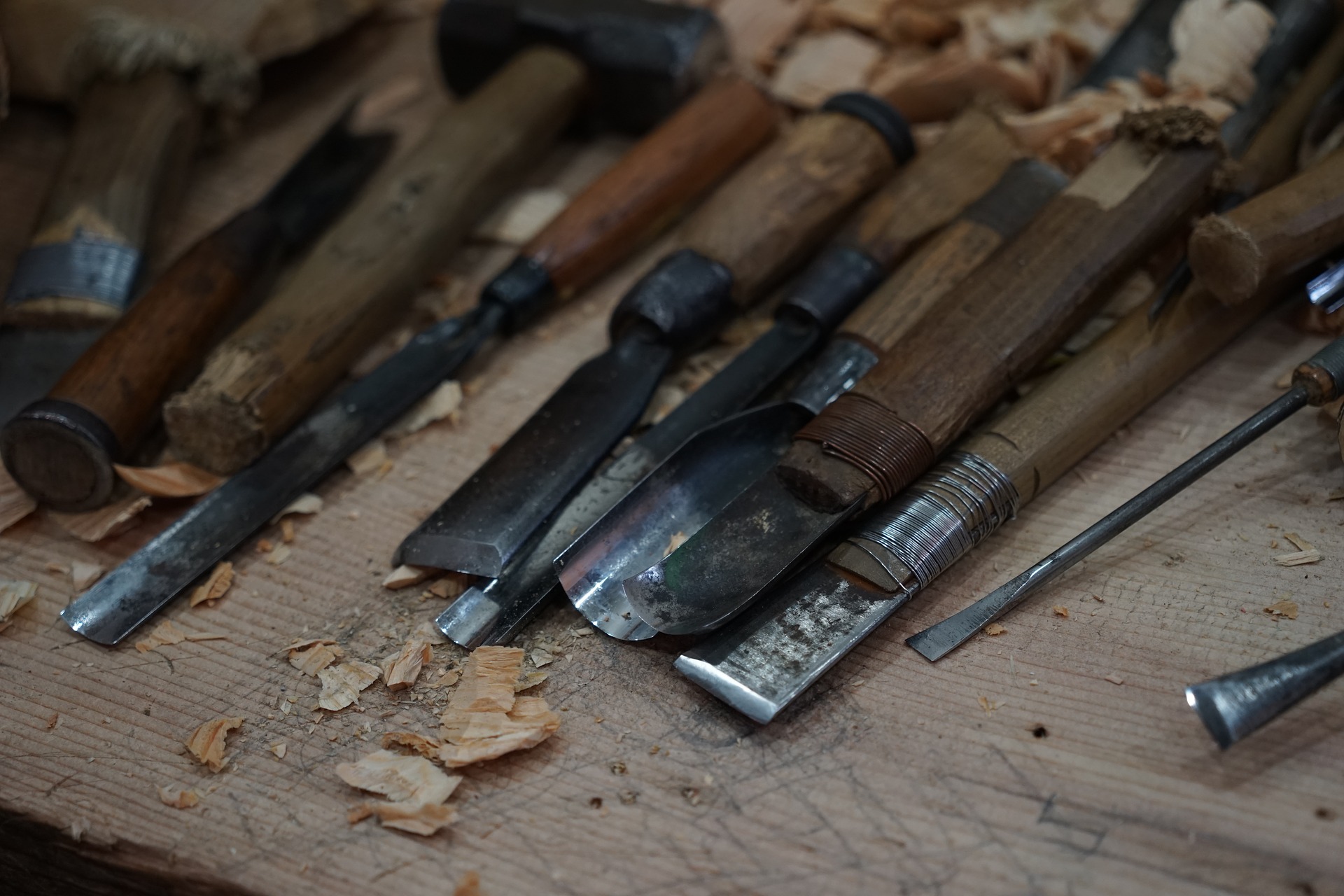 On the second day of our impromptu beach vacation, Dennis decides to buy an electric planer at a local hardware store. “The oak panels need to be thinner, so they will resonate more once the harp is complete.”
On the second day of our impromptu beach vacation, Dennis decides to buy an electric planer at a local hardware store. “The oak panels need to be thinner, so they will resonate more once the harp is complete.”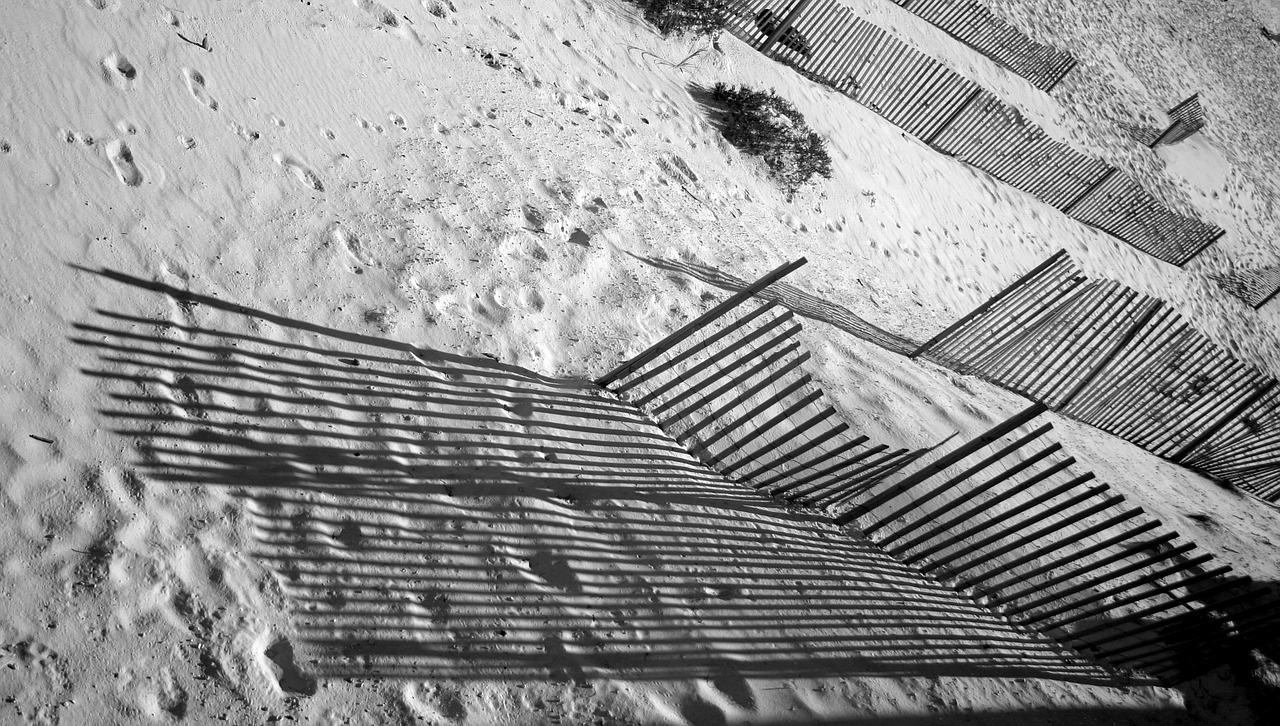 It’s hard writing about the salty Gulf Coast without the taste of fried biscuits in Mendenhall, Mississippi, or the hypnotic curves of rice paddies in southeast Arkansas, the lonely cotton gins and weathered Baptist churches that survive calamitous storms year after year. Before we can throw our bodies into the roiling sea, there’s a rite of passage we must traverse. It takes nine-and-a-half hours to drive from Little Rock to Orange Beach. Nine-and-a-half hours of poverty and the whims of commodity crop economics. It used to be cotton and rice. Now it’s GMO corn and soy. “You can’t even eat that corn,” my mom would say. A black cloud of starlings shoots past us. “I know, it all goes to the cows outside Denver,” I would reply. Dollar General replaced the mom-and-pop small town shops, and now even those soul-starved places are empty, only to be filled by storefront churches promising salvation by the highway. One sign reads Just Church. Fast food wrappers skitter along asphalt and half-smashed snakes. Upturned armadillos try to hold up the sky with their stubby legs. Meanwhile, kudzu swallows up longleaf pines and the lives that depend on them, and the forest turns into a tomb, encased by this foreign, medicinal vine only Agent Orange could knock out. The roadside greenbelt looks more like a freak show displaying storybook monsters frozen in time – their movements, their joys, their battles all swallowed up by this relentless vine. I don’t care how medicinal it is and what the rumors are for curing cancer. That vine is killing the forests.
It’s hard writing about the salty Gulf Coast without the taste of fried biscuits in Mendenhall, Mississippi, or the hypnotic curves of rice paddies in southeast Arkansas, the lonely cotton gins and weathered Baptist churches that survive calamitous storms year after year. Before we can throw our bodies into the roiling sea, there’s a rite of passage we must traverse. It takes nine-and-a-half hours to drive from Little Rock to Orange Beach. Nine-and-a-half hours of poverty and the whims of commodity crop economics. It used to be cotton and rice. Now it’s GMO corn and soy. “You can’t even eat that corn,” my mom would say. A black cloud of starlings shoots past us. “I know, it all goes to the cows outside Denver,” I would reply. Dollar General replaced the mom-and-pop small town shops, and now even those soul-starved places are empty, only to be filled by storefront churches promising salvation by the highway. One sign reads Just Church. Fast food wrappers skitter along asphalt and half-smashed snakes. Upturned armadillos try to hold up the sky with their stubby legs. Meanwhile, kudzu swallows up longleaf pines and the lives that depend on them, and the forest turns into a tomb, encased by this foreign, medicinal vine only Agent Orange could knock out. The roadside greenbelt looks more like a freak show displaying storybook monsters frozen in time – their movements, their joys, their battles all swallowed up by this relentless vine. I don’t care how medicinal it is and what the rumors are for curing cancer. That vine is killing the forests.




